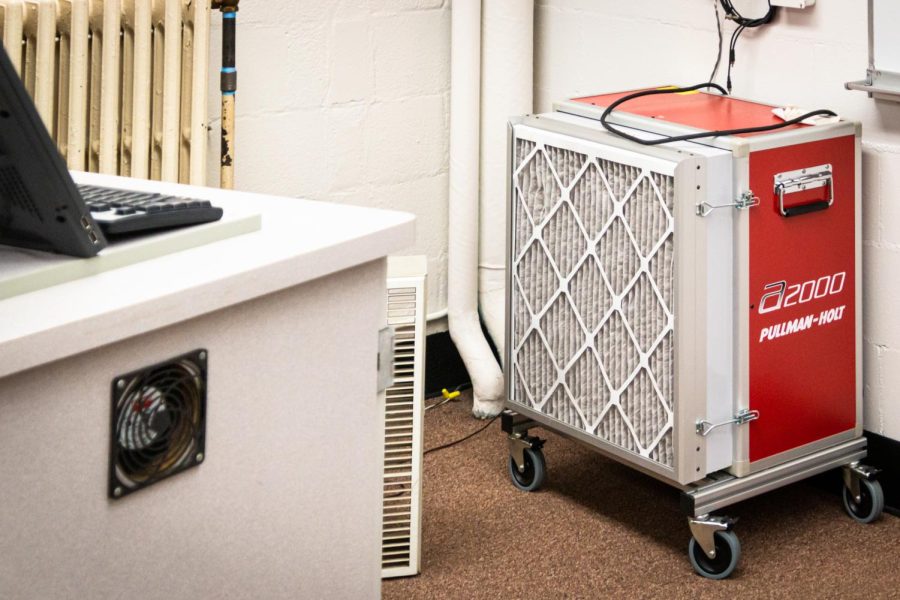What’s Up With: Classroom air filters?
An air filter in a Davis Hall classroom. The Husqvarna A2000 purifier was the first type of air filter that NIU purchased following the return to in-person classes. (Mingda Wu | Northern Star)
March 9, 2023
DeKALB – NIU found itself conflicted beginning the 2020 school year at the height of the pandemic: How would in-person classes work?
With the risk of COVID-19, mask mandates were already a general precaution, but the airborne risk of the coronavirus led NIU to place air purifiers in classrooms, requiring them to be used at all times when rooms were occupied.
But with signs of COVID-19 becoming endemic, many air filters have become remnants of the pandemic era and sit in the corners of classrooms, unused.
NIU’s addition of air purifiers to classrooms originated from agreements with tenured and nontenured professors at the height of the coronavirus pandemic.
“While those faculty union agreements have since expired, the use of the filters is at the discretion of the faculty for their particular space,” Lisa Miner, associate vice president of institutional communications and chief communications strategist, said.
The original large red Husqvarna A2000 purifiers were the first filters NIU placed around campus. While equipped with proficient HEPA air filters, students and professors are familiar with the loud noise they make which makes teaching difficult in small classrooms.
To solve this problem, smaller portable white Winix D360 purifiers were added to additional classrooms, along with the pre-existing filters.
“I choose to use the white one instead of the big industrial one because I teach a language class,” Emily Teising, a French language instructor, said.
NIU currently has no plans to apply any more uses for the purifiers, but the university may benefit from their continued use around campus. The HEPA filters have the ability to filter out bacteria, viruses, asbestos, mold and several allergens in the air. Their use may be a continual benefit for students and staff to provide better allergy relief, or filter out dust and mold particles present in older buildings.







